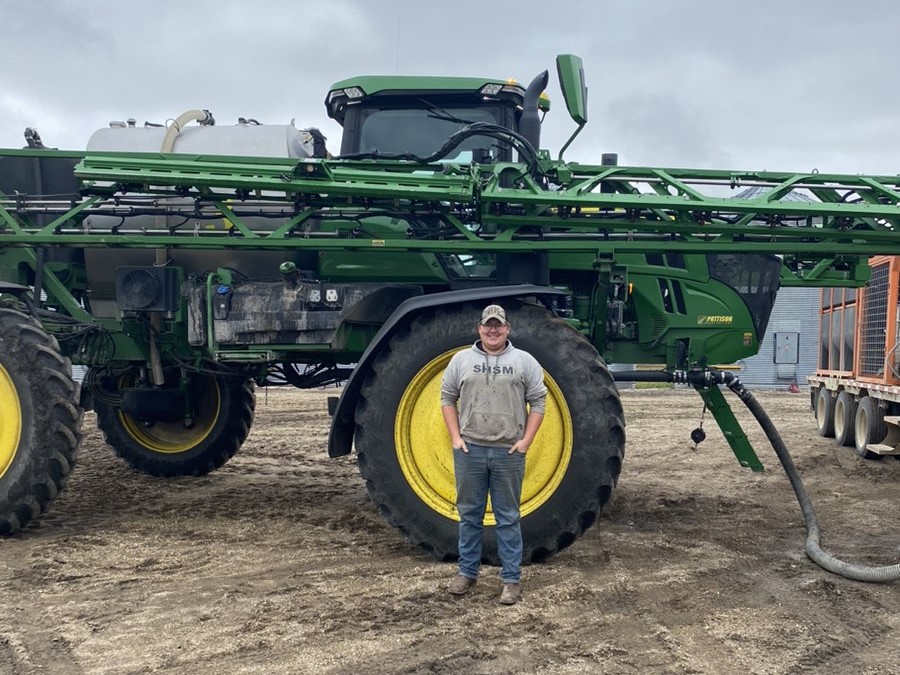 At the intersection of academia and industry, work-integrated learning serves as a vital link between education and real-world success. At the core of Olds College of Agriculture & Technology’s educational philosophy lies a commitment to empowering students with practical, real-world experience. This foundation not only provides students with valuable hands-on skills but also supplies industry with a pipeline of talented individuals who possess innovative thinking.
At the intersection of academia and industry, work-integrated learning serves as a vital link between education and real-world success. At the core of Olds College of Agriculture & Technology’s educational philosophy lies a commitment to empowering students with practical, real-world experience. This foundation not only provides students with valuable hands-on skills but also supplies industry with a pipeline of talented individuals who possess innovative thinking.
Work-integrated learning is more than just an academic initiative; it exemplifies the power of collaboration. Through partnerships with industry leaders, Olds College cultivates a vibrant learning ecosystem that fosters student success. These strategic alliances not only bring together skilled talent and encourage collaboration, but also bolster the reputation of our industry partners within the community.
For industry, robust work-integrated learning programs provide numerous advantages. They grant access to emerging talent, inject organizations with fresh ideas, promote social responsibility, and encourage community engagement - all of which contribute to heightened level of public trust.
For students, they benefit from unparalleled opportunities to gain practical experience, develop essential skills, and build professional networks. Work-integrated learning placements offer students a foot in the door of their chosen field, granting them a competitive edge in the job market.
A great example of work-integrated learning can be seen through Connor Dawson, a student in the Precision Agriculture - Techgronomy diploma program. Dawson's experience working over the summer at Hebert Grain Ventures (HGV) provided him with invaluable hands-on training, enabling him to operate high-value equipment including a $2.3 million drill and a $1.2 million sprayer. He also assisted with various tasks in the shop and yard, further enriching his skill set.
"My biggest learning opportunity came from working with the guys in the shop and helping to fix various pieces of equipment around the yard,” shared Dawson. “This learning opportunity gave me the chance to witness and learn different techniques the mechanics at HGV used when building or repairing a piece of equipment."
Dawson also gained insights into management styles at HGV, observing how a large operation can efficiently manage all aspects without overlooking any detail. He particularly enjoyed engaging in discussions with HGV's President, Kristjan Herbert, and Chief Operating Officer, Jeff Warkentin, always feeling he learned something new each time.
"The College can teach them the theory, and we can teach them the practical applications and how to apply the theory,” shared Warkentin. “By collaborating, primary agriculture can help the College develop a curriculum that services their needs and what's relevant in the industry today."
Warkentin emphasized the passion students have for agriculture, sharing, "Students who are enrolled in an agriculture or ag-related program usually have a strong passion for agriculture. At the Hebert Group, students will work in primary agriculture, but are also exposed to the many different opportunities and skill sets we utilize on the farm, such as red seal heavy-duty mechanics, chartered accountants, agribusiness graduates, geology graduates, and those who have graduated from the school of hard knocks."
Overall, Dawson considers his time at HGV over the summer a great learning experience and a perfect match for his work placement. His story underscores how work-integrated learning programs offer students valuable industry exposure and practical learning opportunities, preparing them for successful careers.
The partnership between Olds College and its industry counterparts represents a strategic investment in cultivating future leaders. By fostering collaboration, the industry plays a pivotal role in shaping a curriculum that not only addresses its needs but also remains highly relevant in today's ever-evolving landscape.
As Olds College establishes new partnerships and pathways for students, collaboration emerges as the linchpin in transforming the future of agriculture for both students and the industry. The synergy between academia and industry lays the groundwork for boundless opportunities, ensuring that students are equipped with the skills and knowledge to excel in their chosen fields.